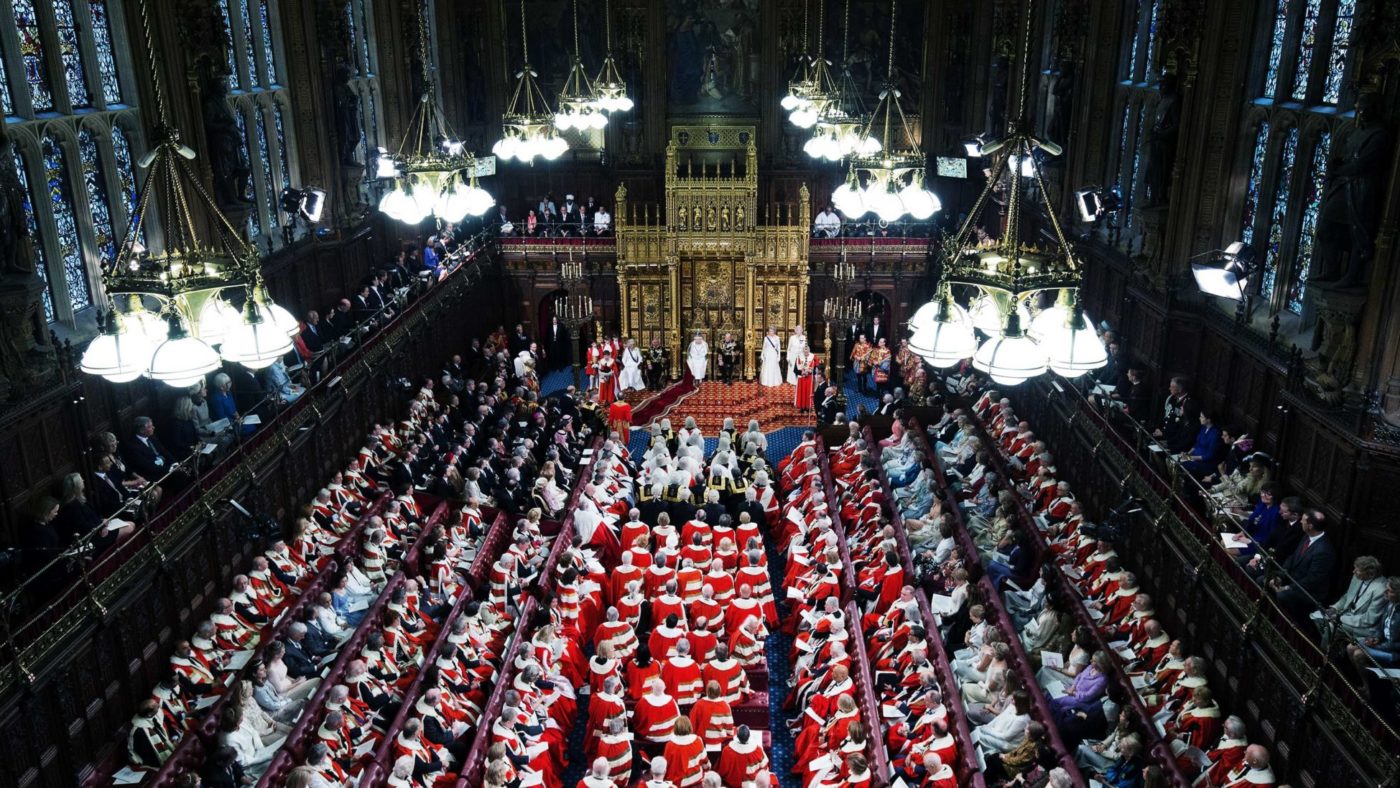It is a constitutional cliché that the House of Lords exercises only a revising power, and that the legislating power resides in the House of Commons alone. But all this has now changed, for clichés are weak.
The Lords’ amendments to the European Union (Withdrawal) Bill are defended by their proponents as revisions only, but the defence fails: New Clause 49 is substantive legislation which would give the Lords the ability to defeat the Bill in a number of ways. By implication, it would break the provision of the Parliament Act of 1911 that the Lords cannot veto money bills, since Brexit has the widest financial consequences.
On the surface, these amendments are a novel power grab, a constitutional innovation that would, if agreed to by the Commons, upset the settlement effected by the Parliament Act that restricted the powers of the Lords: henceforth they could delay a Bill only, not veto it. But on closer examination, there had been no settlement, and no legal barrier effectively stops the Remainer Lords in their course. Rather, the 1911 Act was unfinished business.
Remarkably, the text of the Act contained no mention of a revising power. Instead, it was presented as just a temporary measure before a more sweeping reform: “it is intended to substitute for the House of Lords as it at present exists a Second Chamber constituted on a popular instead of a hereditary basis, but such substitution cannot be immediately brought into operation”. It left the Lords, then, as a legislating chamber, albeit a handicapped one.
Yet in a longer perspective, the position of the Lords was weaker than it now looks. After 1789 Thomas Paine had spoken for many in condemning the principle of aristocracy and monarchy, and in outspoken terms. Franchise extension had been the occasion for a series of set-piece battles in 1832, 1867 and 1884. In the “Peers versus the People” crisis of 1909-11, Lloyd George manoeuvred the Lords into seeming (what they did not in reality intend) to oppose this powerful tide in human affairs.
After 1911, the House of Lords survived because it slowly and pragmatically reinvented itself as an innocent, wise revising chamber. Now this role, widely accepted, has been thrown into doubt.
Ironically, the present crisis is a consequence of a reform intended to modernise the House: the life peers, provided for by an Act of 1958. Over time, successive Prime Ministers proved unable to resist the temptation to reward their loyal followers in ever greater numbers (Blair and Cameron hold the record with an astonishing 357 and 242 creations respectively). A House composed so predominantly of luvvies and cronies contradicts the new, transparent politics of the electronic age: its members are too revealingly interviewed on television; its proceedings are visible free online; many of the life peers appear flatly at odds with the new reality of popular involvement brought about by the institution of the referendum.
Referenda can only become more numerous. The question is not whether 2016 saw the last such exercise, but how many more there will be. They can only diminish the standing of the House of Commons; but the first loser will be the House of Lords, which has, as in 1832 and 1911, nailed its colours to the mast of a sinking ship. It may indeed take another referendum to decide the matter finally, so divided is the social-democratic Establishment. But whatever its outcome, the House of Lords will change.
As in 1911, the peers have failed to see this new world coming. It did not exist when they were party-political legislators in the House of Commons, and when their Remainer mindsets were formed. Driven by what they see as the most principled ideals, they have just gone over a cliff edge (the only one, we might suggest, in the Brexit episode). Accelerating towards this abyss, their House recently countenanced a Bill to disqualify the remaining 92 hereditaries, exactly the group in the Lords most distanced from the recent, and most rejected, exercise of political patronage.
Where do we go from here? It would be unfeasible, for democratic reasons, to single out and disenfranchise only the anti-democractic life peers. Equally, it would be unfeasible to disenfranchise all life peers: that would leave power in the hands of the hereditaries. William IV was willing to create the 80 new peers necessary to pass the 1832 Reform Bill, and George V was evidently willing to create far more in 1911; but no Conservative Prime Minister is likely to be willing to ennoble enough Brexiteer life peers to outvote the Blob that years of social democratic consensus has created.
The proposal most acceptable to that consensus would replace the House and with a Second Chamber elected on proportional representation, or by the regions, or by some fashionable set of interest groups. But this would only create a second, and more opinionated, legislating chamber; it has already been rejected by the defeat of the Alternative Vote at the referendum in 2011 and of regional government by the North East referendum in 2004. Rather than that, it might be better to abolish the Upper House entirely, and remit its revising power to a committee of senior lawyers able to advise but not obstruct the Commons.
These alternatives are deeply unattractive. It follows that another option will recommend itself: a new Parliament Act that defines the revising power and limits the rights of the House of Lords to advice only. It is unlikely that such an Act will stop there; but how many ill-advised provisions will be tacked onto this central one, no-one can know.
From these reforms we might all be losers in a wider sense: the antiquated ideals formerly claimed by the Upper House, the experience, the dignity, the honour and the restraint, sound absurd when rehearsed in television studios, but without them the politics of the House of Commons will descend further towards the manners of the street.


